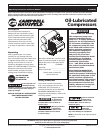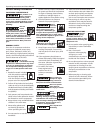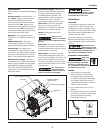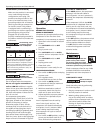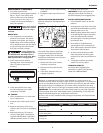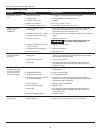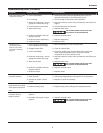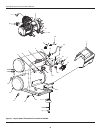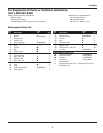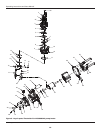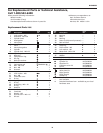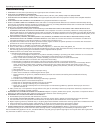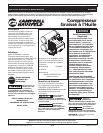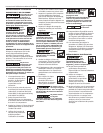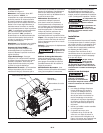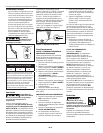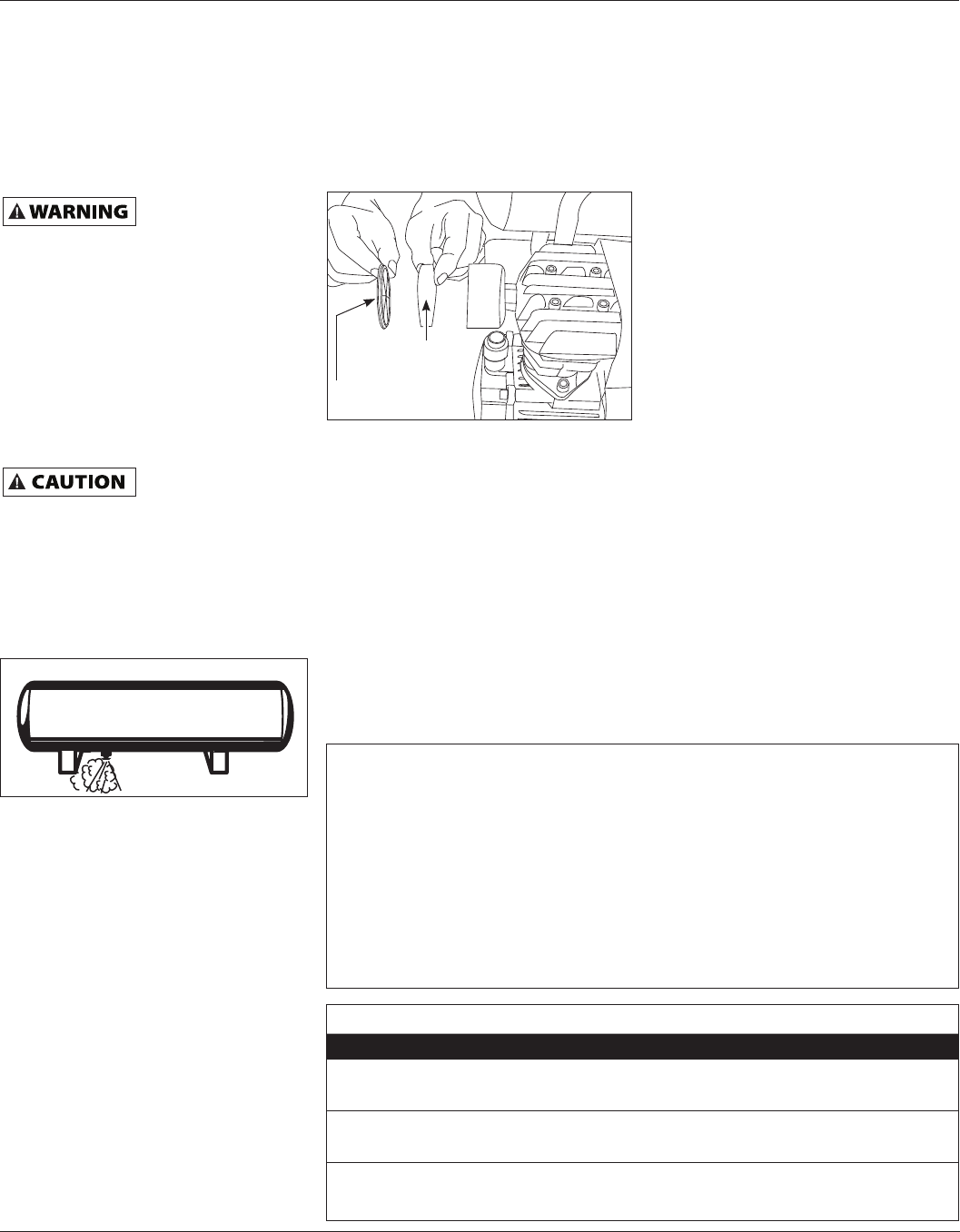
5
HL540200
www.chpower.com
Maintenance (Continued)
3. The safety valve should
automatically close at approximately
40 psi - 50 psi. If the safety valve
does not allow air to be released
when you pull on the ring, or if
it does not close automatically, it
MUST be replaced.
Safety valve must be
replaced if it cannot
be actuated or it leaks air after ring is
released.
DRAIN TANK
1. Turn compressor off and release
pressure from system. (To release
pressure from system, pull ring on
ASME safety valve. Deflect escaping
air by shielding valve with one hand
as you pull ring with other hand.)
Pull ring until tank is empty.
A large amount of
fast moving air will
be released when the safety valve is
opened with pressure in the tank. Wear
ANSI approved Z87.1 safety glasses.
2. Drain moisture from tank by
opening drain valve underneath
tank. Tilt tank to remove all
moisture.
3. Clean dust and dirt from tank,
air lines and pump cover while
compressor is still OFF.
OIL CHANGE
1. Allow compressor to run and warm
up oil. Unplug unit.
2. Position a pan under pump end of
unit.
3. Remove drain plug. Allow oil to
collect in pan. Tilt unit to completely
drain.
4. Replace drain plug, fill pump to
center of sight glass. Use Chevron
synthetic 5W-30, Mobil 1 5W-30 or
10W-30 synthetic motor oil. Using
other types of oil will cause starting
problems.
5. Change oil after every 50 hours of
use.
INTAKE AIR FILTER MAINTENANCE
Removal, Inspection and Replacement
(Figure 6).
The intake filter element should be
removed and checked periodically.
A clogged intake filter can decrease
compressor performance and cause the
compressor to overheat.
1. Rotate the filter cover counter-
clockwise and remove.
2. Remove the filter element and
inspect.
3. If the filter element is dirty or
clogged, replace it.
4. Reinstall filter and cover.
IMPORTANT: Locate unit as far from
spraying area as hose will allow to
prevent overspray from clogging filter.
END OF OPERATION/STORAGE
1. Turn AUTO/OFF switch to the OFF
position.
2. Unplug power cord from wall outlet
and wrap around handle to prevent
damage when not in use.
3. Wearing safety glasses drain tank of
air by pulling the ring on the safety
valve. Use other hand to deflect
fast moving air from being directed
toward your face.
4. Drain tank of condensation by
opening drain valve on bottom of
tank. Tank pressure should be below
10 psi when draining tank.
5. Air hose should be disconnected
from compressor and hung open
ends down to allow any moisture to
drain.
6. Compressor and hose should be
stored in a cool, dry place.
TECHNICAL SERVICE
For information regarding the
operation or repair of this product,
please call 1-800-543-6400.
Figure 5
Figure 6 - Intake filter maintenance
Filter
cover
Filter
element
MAINTENANCE SCHEDULE
OPERATION DAILY WEEKLY MONTHLY 3 MONTHS
Check Oil Level
l
Drain Tank
l
Check Air Filter
l
Check Safety Valve
l
Clean Unit
l
Change Oil
l
MOISTURE IN COMPRESSED AIR
Moisture in compressed air will form into droplets as it comes from an air
compressor pump. When humidity is high or when a compressor is in continuous
use for an extended period of time, this moisture will collect in the tank. When
using a paint spray or sandblast gun, this water will be carried from the tank
through the hose, and out of the gun as droplets mixed with the spray material.
IMPORTANT: This condensation will cause water spots in a paint job, especially
when spraying other than water based paints. If sandblasting, it will cause the
sand to cake and clog the gun, rendering it ineffective.
A filter in the air line, located as near to the gun as possible, will help eliminate
this moisture.



